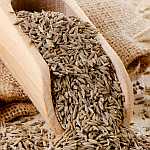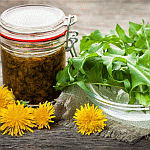
Vinod Verma
01.03.2008 | ADVERTORIAL | Newsletter von Vinod Verma in Englisch
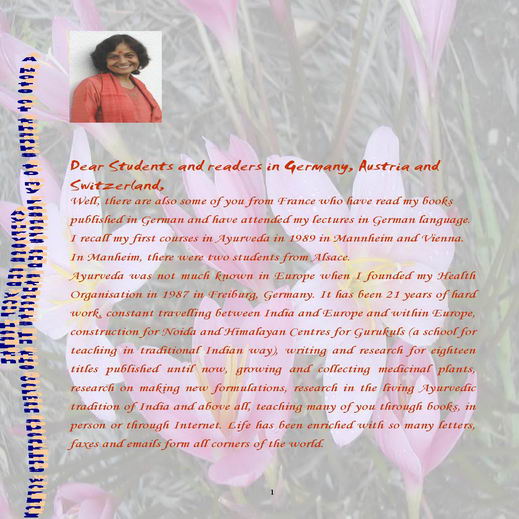
I am very grateful to all of you, as I learnt a lot by teaching you. HOW? In fact, I realised how difficult the simple practices of Ayurveda were for Westerners. That gave rise to writing more books. For example the Nutrition and Recipe book (Lebens Küche) and Programming your Life with Ayurveda (Das Ayurveda-Programm für Jeden Tag) were the books demanded by the students.
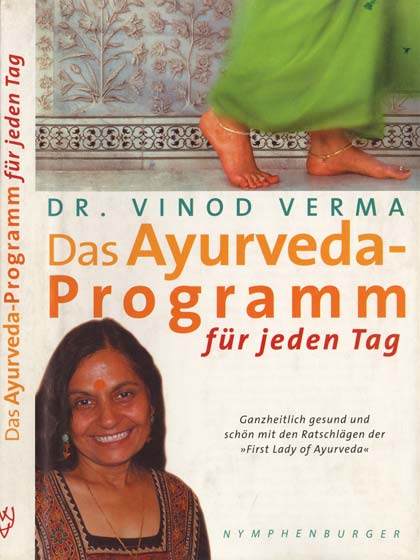
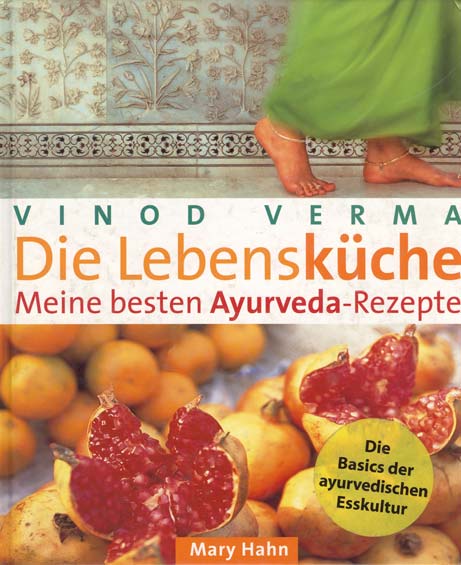
I felt that I had written enough in my first two books—Ayurveda: A Way of Life (AWOL) and Ayurveda for Inner Harmony; but the students asked for the practical work-books on Food and simple practices of Ayurveda. These books have been very popular since then. Besides, there are certain other themes, which are a part of Ayurveda and are not highlighted properly for integrating them in our modern way of living. In India, these things are imbibed in the tradition in such a way that they are followed and not talked about. The three topics which I chose on such themes during the last few years are: Companionship and Sexuality, Losing Weight and Enhancing the natural Glamour.
It is possible to read a part of these books, also in German Language in the Google Library on line.
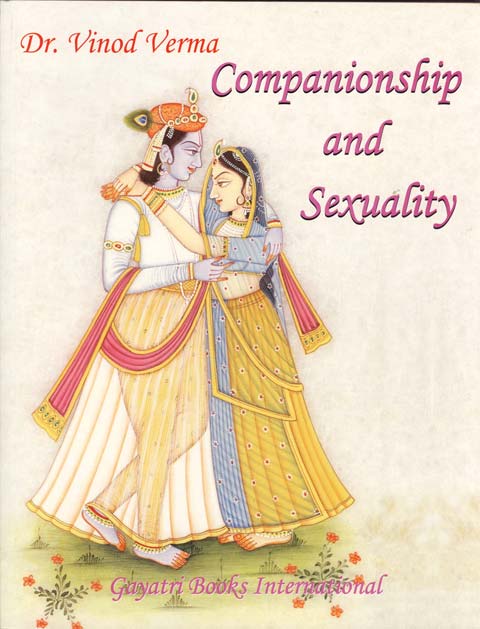
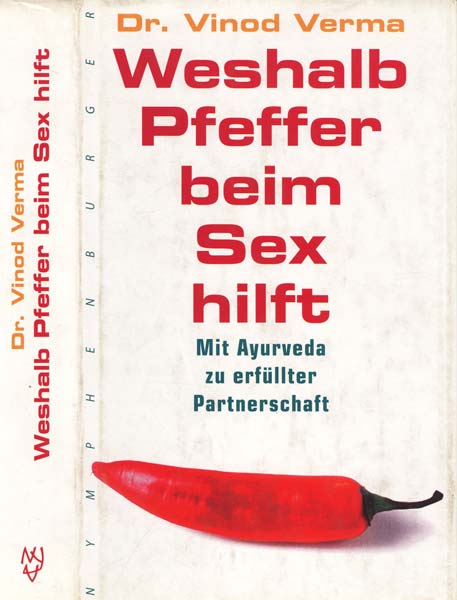
With experience from people who are not my students but come to me for private sessions, I realised that they want to have rather small books and on specific topics. Such books are also very practical for general public awareness about prevention and dealing with a particular ailment. Thus, recently we have started a Wakeup Series, which will have small books each dealing with a particular health problems.
Dog—a dear friend and caretaker of the human beings should not be left behind and there is a book to honour this lovely creature and to extend our gratitude to it.
My dear friends, although I teach you in German but I am unable to write good German, and I ask for your apology. Please deal with English for this column. Also our Distant Learning Programme through Internet takes place only in English. However, you can always write back to me in German.
Once again, I thank you all for your enthusiasm for my books and teaching and above all, for keeping in contact from even the remote parts of the world.
For the celebration of the TWENTY ONE YEAR of active work in promoting health, please join hands with us to spread the message of AYURVEDA for preventing ailments, living long and attaining an optimum energy level.
With love and best wishes for good health and long life,
Vinod Verma
drvinodverma@dataone.in or ayurvedavv@yahoo.com
PS: In Europe, you celebrate the years with zero, whereas in Indian tradition, odd wins over even and we celebrate with some specific odd digits like 11, 21, 51.
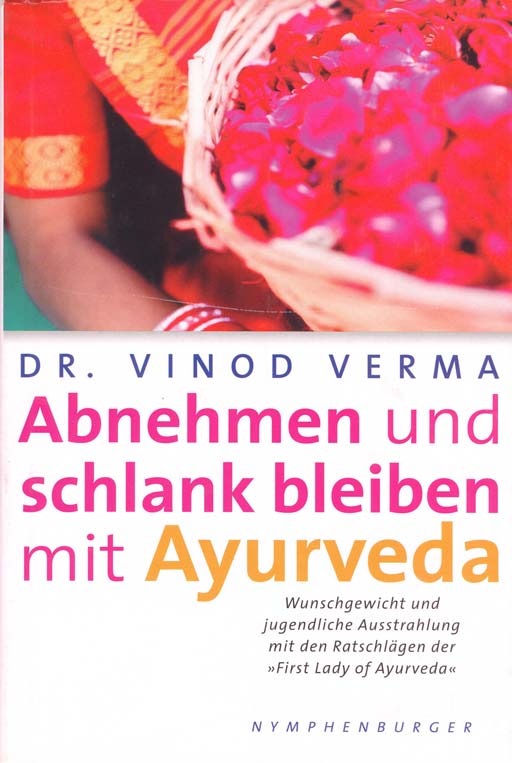
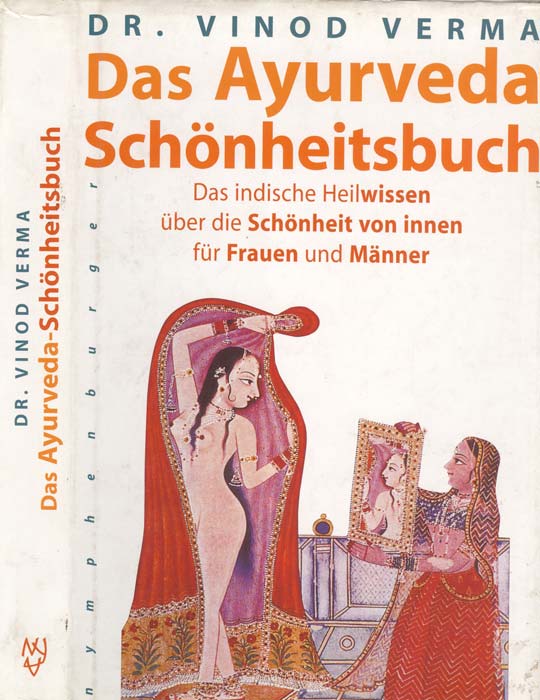
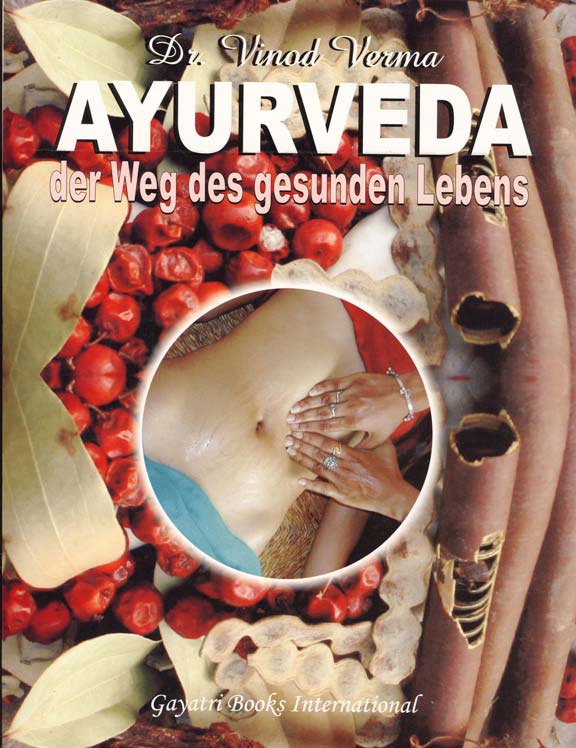
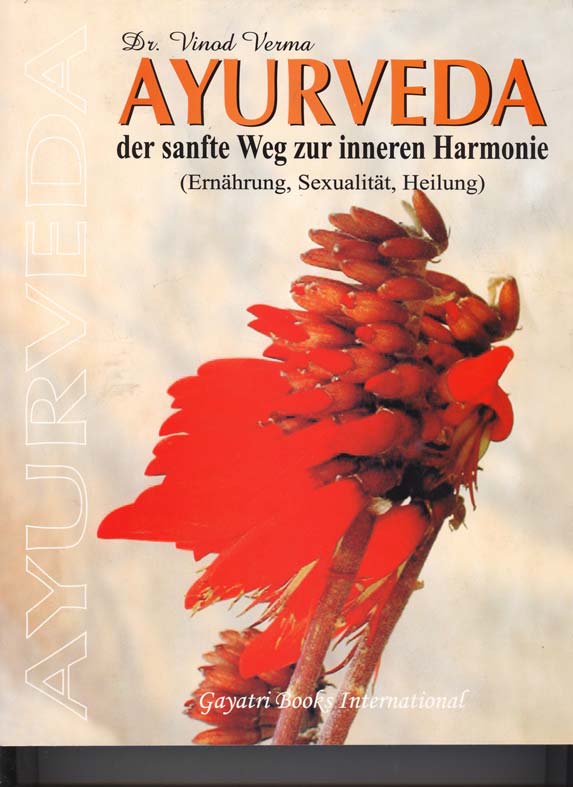
New revised editions of the classical Ayurveda books
To wish you a healthy and peaceful 2008, here is a message from Ayurvedic wisdom:
Stay in tune with the Natural Rhythm
ACT NOW; DO NOT DELAY
The time to invest in your health is NOW…
so that you become later
A person who is old and wise and…
not the one who is old and senile.
Gush with Energy and life…
Like the Ganga and the Rhine.
The space is yours, the cosmos is yours
Breathe in deep the healthy air
Let the sun shine in you…
Remain cool like water…
And stable like earth…for
without good health…
the world comes to an end for you…
Remember…
The first priority in life should be
To safeguard life.
Take care of this temple of soul…for
It is holiest of holy!
Our 2008 resolve for promoting Ayurveda to prevent ill health:
We continue to promote GENUINE and AUTHENTIC Ayurveda education through our Charaka School of Ayurveda (CSA).
o With distant learning programme through Internet.
o Basic and advanced courses in our serene Himalayan Centre so that you can enjoy pure nature.
o Of course the teaching programmes in Germany and Switzerland will continue as usual.
We enhance communication with the readers and students.
We supply authentic and exclusive Ayurvedic products.
We make sure that you have excess to our publications, which are all translated and published into German language.
Availability of private consultations.
We make sure that our programmes and information about the books are published on Ayurveda Portal so that you all have excess to this information.
What is new at NOW and at The Charaka School of Ayurveda:
Our Wakeup series: small practical book series either on health promoting techniques like special and advanced pranayama practices or focusing on a particular problem, like pain, allergies, knees, back and so on.
Reply to your questions on the related themes through this column of Ayurveda Portal. Please email your questions to me directly. They should be general questions about Ayurveda and not on your personal health problems. For a health problems of a particular person, I need to have at least 90 minutes with that individual… and that is how long a private session lasts with me.
An article for you every three weeks through this column. I will entertain your questions on that particular theme.
Special courses for Ayurvedic teachers and Halpraktika in our Himalayan Centre or in Germany.
Soon, you will get two small workbooks for learning to relax and prevent computer ailments. You will learn through pictures.
The revised editions of two of my best selling classical books have been published in German.
1. Ayurveda: der Weg des gesunden Lebens
2. Ayurveda: der sanfte Weg zur inneren Harmonie (Ernährung, Sexualität, Heilung).
German Editions of Patanjali and Ayurvedic Yoga, and Stress Free Work with Yoga and Ayurveda are also available with us.
Following is an introductory article for you to show the link between Ayurveda and the other four ancient Vedas. This is an important article that shows the prime importance of human body in the Indian tradition and the first duty of human beings to take care of it.
Sanatana dharma of the Vedas and Ayurveda
Those of you, who are interested in Ayurveda, should know about the Vedic origin of Ayurveda and the fundamental philosophy behind it. For motivating you into health care practices, it is important to present before you how essential it is to take care of oneself for a long, healthy and energetic life. All the achievements in life depend upon are health and well being.
The principles for life based upon the cosmic principles were called as sanatana dharma by the ancient Indians. Sanatana dharma is not a religion but a Weltanschauung. It does not only talk of the human beings and the cosmos but also of the cosmogony. It is continuity in time and it denotes the Eternal norm or the cosmic system in cyclic order. The essence of the teachings of sanatana dharma is that the Brahman or the Universal Soul invades all in cosmos and is the cause of life. All what exists is cyclic. Even the phenomenal world is cyclic. That is why a wheel called the dharma chakra or the cosmic wheel represents sanatana dharma. The cosmic wheel revolves around its immutable axis, the Brahama or the Universal energy. Dharma denotes the order governing the cosmos in all its manifestations, cosmic, religious, social etc.
Dharma cannot be translated as religion as this vast tradition of the Hindus is not bound by certain sets of rules and regulations to be followed and the followers must pray or believe in certain God or god like figure and so on. It has no founder or no special norms. It is technically wrong to use the word ‘Hinduism’ or Hinduttva. Hindu dharma is far from being a religion. It is a cosmic system where human beings are also there. There is no God who can be responsible for the goods or evils of the world. It is the karma of each one of us which is responsible for our pains and pleasures. Each individual is responsible for his or her good or bad luck. It is a vast and well-organised system that works with cause, effect and substratum. A human being cannot assign his/her goods or evils to a particular god. Each individual accumulates his or her karma and these unfold themselves when the time and situation is appropriate. There is a cycle of life and death and the quality of the next life depends upon the previous karma of an individual. The only way to get rid of this cycle is through yoga. Similarly, there is bigger cycle of the phenomenal world and its dissolution. Time is eternal and hence neither the individual nor the world comes to an end and therefore a chakra or wheel represents dharma.
Brahman or the Universal Soul
One may describe Brahman as the cosmic energy or the Universal Soul that puts life into all things and is the cause of all what exists. It is not a God. There are many gods in the Hindu tradition. The cosmic energies like the sun, moon, rivers, mountains etc. acquire the forms of various gods and are venerated. But Brahman is the essence of all and it is without any form or shape and is the cause of being. In the Vedic literature, it is addressed simply with a pronoun ‘that’. In Mundaka Upanisad, it is described as follows:
‘That which cannot be seen, nor seized, which has no origin, which has no properties, which has neither ears nor eyes, which has neither hands nor feet, which is eternal, diversely manifested, all pervading, extremely subtle and imperishable, the wise regard it as source of all beings, all creation.’
In Mahanarayana Upanisad, it is described as follows:
‘The something in which all things assemble and disperse,
on which the gods have their seats,
is That, the imperishable, the supreme firmament...
That something with which space
and heaven and earth were filled,
by whose means the sun warms,
by whose means the water generates life,
is That, order and truth,
the supreme Brahman of the sages?
Navel of the universe,
That sustains all things’
Brahman is the essence of all life, it is the cause of the phenomenal world and existence. In Chandogya Upanisad, Uddalka teaches about the universal reality to his son Svetaketu as follows:
*Fetch me a fruit of the Banyan tree.’
‘Here is one Sir.’
‘Break it.’
‘I have broken it Sir.’
‘What do you see?’
‘Very tiny seeds Sir.’
‘Break one seed.’
‘I have broken it Sir.’
‘Now what do you see?’
‘Nothing Sir.’
‘My son, Said the father, what you do not perceive is the essence, and in that essence, the mighty Banyan tree exists. Believe me my son, in that essence is the self of all that is. That is the truth and that is the self and you are that self Svetaketu!’
The period of Vedas, Brahmanas and Upanisads is termed as the Vedic period. Later, in the Bhagavad Gita, this spiritual message was conveyed in the form of devotional songs. But the fundamental Vedic thought about the universal reality remained the same in this body of literature.
‘Supreme Eternal Brahman, which can be called neither being nor non-being... without any senses, unattached, supporting everything, free from qualities and enjoying qualities, ...within all beings, immovable and also movable, by reason of its subtlety, imperceptible, at hand and far away is That. Not divided amid beings, it devours and it generates. That, the light of all lights is said to be beyond darkness; wisdom, object of wisdom, by wisdom to be reached, seated in the hearts of all.’
There is a cosmic oneness and the unmanifest Brahman permeates all that exists and that is why for the Hindus, anything can be the object of veneration, a river, a tree, a stone, a mountain, sun, moon, stars, a mantra, another human being or a guru and so on. The Hindu tradition is not theistic. Brahman is unembodied. For a better comprehension of the Eternal energy, in Rg veda, it is compared to the human form.
*A thousand are the heads of a man-cosmos,
a thousand his eyes and thousand his feet!....
He is all that is, all that was, all that will be....
From his mind, originated the moon,
from his eyes, the sun,
from his mouth the fire, and
from his prana, the air came forth.
From his navel, originated the space,
And from his head, the heaven;
the earth originated from his feet,
and directions (east, west etc.) came from his ears.’
Svadharma
It is the duty of each individual to keep balance at mental and physical level for maintaining health and Ayurveda describes the code of conduct for that. It is called svadharma. Sva means individual or self. According to Ayurveda, the first priority of life is to take care of one’s health. The second priority is to earn one’s living in order to sustain oneself and the third priority is to pursue a spiritual path. It is important to understand that Ayurveda is not only the medical science like that of modern medicine. It is the science for the entire life in all its aspects. The aim of this science is not to keep people disease free but to guide people how to live life to the optimum level, have maximum energy and fight against aging and disease. Ayurveda also shows ways to organise once life and live according to time and place (desha and kala) at diverse level of one’s existence. Ayurveda teaches us the crisis managements (dharama sankata) in life through sattvic means and prepare for our death. All these are a part of svadharma and each individual is supposed to take his/her responsibility for maintaining basic health. Health is equilibrium (samya) and disequilibrium is a state of being unhealthy (vikriti) at the initial stages and later when it is more grave and takes the form of a disease is called vaisamya. According to Susuruta, ‘A healthy person is that who has equilibrium of dosas, agni, dhatu and malas (equilibrium at physical level) and has pleasant disposition of mind, senses and consciousness (psychic equilibrium)’
The three priorities of life according to Ayurveda
According to Charaka, “Perverted, negative and excessive use of sense objects, time and intellect is the three-fold cause of both psychic and somatic disorders. Both body and mind are the locations of disorders as well as of pleasure. The Self (soul) is devoid of disorders.”
An individual is responsible for himself/herself and has to learn his svadharma towards his/her body and mind.
Management of serious ailments and disorders described in Ayurveda are to be treated by the qualified physicians and there is also a detailed description of the code of conduct (dharma) of a physician.
A person having un-deranged mind, intellect, potency and prowess and looking to his well being here and in the world hereafter, should pursue three desires:
1. Desire for life
2. Desire for wealth
3.Desireforspirituality
Outof all these desires, one should follow first the desire for healthy and optimum living (with regard to energy level), because in case of ailment or death, everything else in the world is worthless.
Desire for wealth should have second priority next to life. There is nothing more awful than to have a long life without the means of subsistence.
After the fulfilment of the above two desires, one should follow the path to spirituality in order to experience reality beyond our sensory perception.
Adharma− the cause of ailments
Adharma is that which is not in accordance with the universal order. All those actions which are out of tune from the cosmic rhythm. According to Charaka, the root cause of all derangements is adharma and it arises due to prajnaparadha or the intellectual error.
“The unwholesome action performed by one whose knowledge (dhi), restraint (dhrti) and memory (smrti) are deranged is known as intellectual error (prajnaparadha). It vitiates all the doshas. Propulsion of urges and their suppression, indulgence in exerting actions and excessive sexuality, hectic or delayed actions, wrong initiation of actions, disappearance of modesty and good conduct, rebuking the respected ones, knowingly using unwholesome things, use of factors which cause severe derangement of mind, movement in wrong place and time, friendship with the wicked, avoiding noble code of conduct described in the chapter of introductory description of the senses, envy, conceit, fear, anger, greed, ignorance, narcosis and confusion, troublesome actions taken under their spell, troublesome bodily actions and other such actions arising from rajas and tamas is said as the intellectual error by the nobles which is the cause of diseases.”
Thus, we see that knowledge (dhi) about the code of conduct about once health (svadharma) is very important for maintaining health (svasthya) and one has to use restraint (dhrti) to follow that code of conduct and one has to remember (smrti) to follow these principles of health for gaining and maintaining equilibrium. Error in one of these three leads to prajnaparadha and thus becomes the cause of mental or physical disorders and sufferings.
In conclusion, the Hindu dharma is a holistic way of looking at life and it encompasses all aspects of life. Scientific tradition of Ayurveda is also holistic. In both dharma and Ayurveda, there is single cosmic principle is applied. Same principles that govern the cosmos are applied to biology and medicine. The humans are the ksudrabrahmanda (small egg of immensity) of the gross brahamand (egg of immensity).
Suggestion: Please watch a film on Google: The Scientific Validiction of the Vedic Wisdom.
***************************************************************
Dr. Vinod Verma’s programme for 2008 (Holistic Health, Ayurveda, Yoga)
Contacts in Europe: Biermann, Altestr. 66, D-79249 Merzhausen, Freiburg. Telephone 0761-474447, Fax: -383486, & c/o Gisela Binder, Feldbergstr. 34, CH-4057 Basel, Tel. 061-692 3849, fax: -692 3502. Contact preferably by
e-mail: ayurvedavv@yahoo.com or drvinodverma@dataone.in
Jan-Feb. CSA Part I and Part III through Internet (Distant Learning Programme).
Write to Vanaja at drvinodverma@dataone.in or ayurvedavv@yahoo.com for more information on Distant Learning Programme.
30 May to 1st June: Göttingen
Three days seminar in Yoga School (BUGY) on Patanjali’s Yogasutra and Ayurvedic Yoga. Contact Michael Röslen Wilhelm-Bendickstr. 35, D-37130 Gleichen OT Grosse Lengden. Tel/fax 05508-92135, mroeslen@t-online.de
2nd to 6th June: A five days seminar on Ayurvedic lifestyle and nutrition in Dresden. Contact me directly for more information.
7th to 8th June: A weekend seminar for old students for revival and rejuvenation of knowledge, in Dresden. Contact mefor more details.
9th June: One-day seminar in Dresden on Ayurvedic Cuisine: God’s own Apothecary. Organised by Sächsische Landesapothekerkammer, Dresden.
Contact Frau Brigitte Keil, Tele. 0351 467 5120 or Liebig-Apotheke@gmx.de
13th to 15th June: Friday Lecture, weekend Seminar and private sessions on Consumption of Toxins in the Modern world and Ayurvedic methods of detoxification. Vaihingen (near Stuttgart),
Contact Susanne Schwarz-Zeeb at 07042 14369 or familie.schwarz-zeeb@onlinehome.de
23rd to 29th June: Ayurveda long-term education, CSA Part I, Contact me by email at drvinodverma@dataone.in or yurvedavv@yahoo.com
15th July to 15 th August: CSA Part I and Part II through Internet (Distant Learning Programme). Write to drvinodverma@dataone.in or ayurvedavv@yahoo.com for more information on Distant Learning Programme.
26th to 28th September: Three days seminar in Yoga School (BUGY) on Patanjali’s Yogasutra and Ayurvedic Yoga.
Contact Michael Röslen Wilhelm-Bendickstr. 35, D-37130 Gleichen OT Grosse Lengden. Tel/fax 05508-92135, mroeslen@t-online.de
1st to 7th October: Ayurveda long-term education, CSA Part II. Contact me by email at drvinodverma@dataone.in or ayurvedavv@yahoo.com
11th to 12th October: A seminar on Companionship and Sexuality (Please wait for information about the place).
14th to 17th Oct. in Frankfurt. Private sessions and Book Fair.
18th November to 8th December: In the Himalayan Centre, CSA long-term education, Three weeks intensive programme, Charaka School of Ayurveda (District Uttarakashi).
Contact Vanaja by email at drvinodverma@dataone.inor ayurvedavv@yahoo.com
15th December to 14th January: CSA Part I and Part II through Internet (Distant Learning Programme). Write to drvinodverma@dataone.in or ayurvedavv@yahoo.com for more information on Distant Learning Programme.
Private sessions are offered at every place. Please contact Dr. Verma at Basel telephone number given above or by email ayurvedavv@yahoo.com for appointments.
*****************************************************************************
Enhance the use of Dynamic spices in your foods. Seeds have potential of being a plant and has much subtle energy. The mixture of the following four is a wonder. Guess what are these spices? Find the answer on page 160 of Das Ayurveda- Programm für jeden Tag. It is called the Chaturbeej Churan. It is a wonder preparation for your household apothecary.
Given below is our brochure about all the books published until now:
The World of Ayurveda and Ayurvedic Yoga:
The Oldest and Holistic System of Medicine
The Ayurveda Pioneer
Dr. Vinod Verma’s Authentic and Value-added Work on all aspects of yoga and Ayurveda
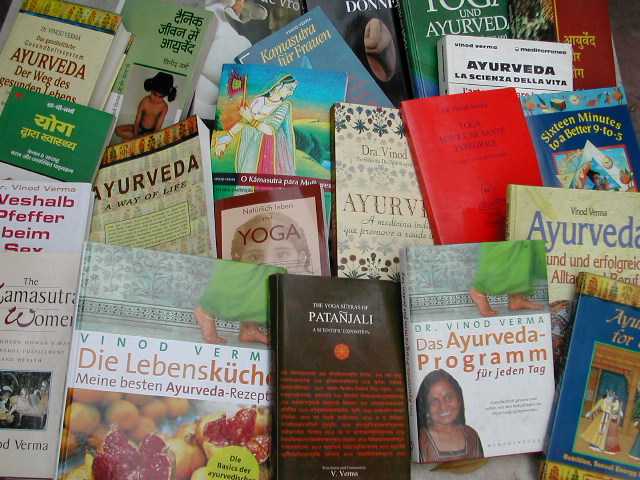
Dr. Verma is the first one to present to the world the ancient wisdom in a scientific manner with modern metaphor and with a new paradigm. She has been doing research since 1980s and her first books appeared in late eighties.
Books published by Dr. Verma
The following books were published between 1987 and 2008. Some books are in the process of reprinting and are not yet available.
Please contact for more details: gayatribooks@yahoo.de or ayurvedavv@yahoo.com (A-130, Sector 26, Noida 201301, Uttarapradesh, India).
• Ayurveda: A Way of Life (Published in English, German, Italian, Spanish, French, Czech, Portuguese and Hindi).
Complete and comprehensive book to attain knowledge about the fundamental basis of Ayurveda and its practical aspects in everyday life. It is the first book ever to present Ayurvedic wisdom in an analytical and scientific manner and with the supportive citations from the original ancient manuscripts.
• Ayurveda for Inner Harmony: Nutrition, Sexual Energy and Healing (Published in English, German, Italian, French, Romanian and Hindi).
This book deals with the three principal aspects of Ayurveda for health and healing and importance of these aspects for our well-being. Balanced nutrition, equilibrium in sexuality and spiritual therapy (along with rational and mental therapies) are some major aspects in Ayurvedic treatment.
• Programming Your Life with Ayurveda (Published in German, French and English)
This is the first ever workbook on Ayurveda and has the practical aspects of daily routine, weekly routine, seasonal routine, monthly routine and half yearly cleansing practices. Description is given with each detail so that you can learn and do on your own. It has also healing remedies for maintaining balance and promoting strength.
• Companionship and Sexuality: Based on Ayurveda and the Hindu tradition. (Published in English and German)
Sexuality is the nucleus of companionship and companionship is the protective cover for sexuality. Based upon the three characteristic qualities- sattva (stillness), rajas (action) and tamas (inertia), the book highlights the primordial differences between men and women and provides practical methods for enhancing understanding and harmony.
• Aum: The Infinite Energy: Techniques for Stability, Strength and Stress Management (Published US/UK edition, Indian edition and in German)
Aum signifies the totality of the cosmos. Repetition of AUM helps develop mental lucidity, intuition and enhances work efficiency. The present books teaches you how to imbibe AUM practices in your daily routine and benefit for health and healing.
Wakeup Series, ISBN: 81-89514-06-7 Price: 150 Rs
• Losing Weight with Ayurvedic Diet (Published US/UK edition, Indian edition and in German)
Contrary to the most available diets, the wholesome Ayurvedic diet is delicious and health and beauty promoting. Based upon Ayurvedic principles, it is the result of Dr. Verma’s long time research.
• Patanjali’s Yoga Sutra: A Scientific Exposition (Published in English, Hindi and German).
A translation and commentary of the Yoga Sutras, made easily comprehensible with charts and drawing, and shows the systematic and scientific aspects of yogic wisdom.
• Yoga: A Natural Way of Being (Published in English, German, French, Italian and Hindi)
This book has simple methods to adopt a yogic way of life for physical strength and mental harmony. Through very simple exercises and a nine-week plan, you can learn yogic exercises, postures and concentration practices on your own.
Books out of print and in the process of being published
• The Kamasutra for Women (Published in English, German, French, Dutch, Italian, Portuguese, Romanian, Hindi and Malayalam).
This book describes for the first time the primordial difference between men and women based on the three qualities of Prakriti− The Cosmic Substance. Menstruation, pregnancy, childbirth, menopause and their relationship to women’s sexuality are an important part of this book. The three phases of sexual act and sexuality and spirituality are the other highlights.
• Stress-free Work with Yoga and Ayurveda (Published in German, English and Hindi)
Tension and stress built at physical and mental level while working can cause several different kinds of aches and pains. Simple yogic and Ayurvedic practices and methods are given to maintain a balance and to keep good health. A sixteen minutes daily programme to maintain physical fitness and inner peace is the highlight of this book.
• Patanjali and Ayurvedic Yoga (Published in English, German and Hindi).
Charaka has laid a great emphasis on yogic practices for health. The principal theme of the book is to learn to integrate the discipline of body and mind from Patanjali’s Yoga Sutras to attain good health and inner peace.
• Ayurvedic Food Culture and Recipes (Published in English, German and Hindi)
Disciplined way of eating is as important in Ayurveda as the right combination of ingredients. After the descriptions of the fundamental principles of Ayurvedic nutrition and consumption of food, the recipes of breakfast, main meals, desserts, drinks, side dishes and some other foods are given.
• The Natural Glamour: The Ayurveda Beauty Book (Published in German, Romanian and English)
The book emphasises the concept of roopa, the inner radiation all of us have and how to highlight it with various practices like inner cleaning, outer care and mental balance. The book is meant for all: men, women and children.
• Losing and Maintaining Weight with Ayurveda and Yoga (Published in English (UK, USA) and German)
Over-weight is a perpetual problem of modern times. The book tells you not simply the methods to reduce weight or diets for doing so, but also all those factors and actions which enhance weight. This holistic diet will not only make you slim but also will improve your health.
• Good Food for Dogs: Vegetarian Nourishment based on Ayurvedic Wisdom (Published in English UK/USA and German).
• Timeless Wisdom of Ayurveda: A Scientific Exposition (in press)
This is a small book to give you an exposure to Ayurveda and its holistic approach that touches all aspects of your life.
• The Two Mysteries of Ayurveda: Prakriti and Pulse (in press), published only Pulse part in German.
Prakriti is the fundamental constitution and reveals the behavioural psychology of an individual. It is the inner human face that can be seen with careful observations. It helps understanding people physically and mentally and can be used not only for health and healing but also for enhancing understanding. Pulse examination reveals the state of body and mind for an Ayurvedic physician. This book is a practical guide to learn these two aspects of Ayurveda.
• Bala Kamasutra: Aphorisms for Imparting Sexual Education to Children (in preparation)
All these books are fully illustrated with sketches and photographs.
About Dr. Verma 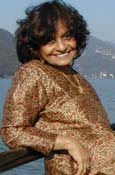
After a doctorate degree in reproduction biology in India, Dr. Verma studied Neurobiology in Paris University and obtained a second doctorate. She pursued advanced research at the National Institutes of Health, Bethesda (USA) and the Max-Planck Institute in Freiburg, Germany. At the peak of her career in medical research in a pharmaceutical company in Germany, she realised that the modern approach to health care is basically fragmented and non-holistic. Besides, we are directing all our efforts and resources to cure disease rather than maintaining health. In response, Dr. Verma founded NOW in 1986 to spread the message of holistic living, preventive methods for health care and to promote the use of mild medicine and various self-help therapeutic measures.
Dr. Verma grew up with a strong familial tradition of Ayurveda with a grandmother who had enormous Ayurvedic wisdom and was a gifted healer. She has been studying Ayurveda in the traditional Guru-shishya style with Acharya Priya Vrat Sharma of the Benares Hindu University for the last 21 years and completed her doctorate.
Dr. Verma is an ardent researcher and is working hard to compile the living tradition of Ayurveda and spread it in the world through her books. She has published eighteen books on yoga, Ayurveda, women and Companionship. The books are published in various languages of the world. Besides, she has published numerous scientific papers. Several other books are in preparation. She lectures extensively, teaches in Europe for several months a year, trains students at her two centres in India and gives radio and television programmes. Her film on Ayurveda was shown in 100 countries in 130 languages.
Dr. Verma has founded Charaka School of Ayurveda to train interested people with genuine Ayurvedic education so that they can further impart the knowledge of Ayurvedic way of life and save people from becoming a victim of charlatanry in Ayurveda.
Dr. Verma is doing several research projects on medicinal plants and their combination in the form of remedies. She has also taken up a social service project to distribute and promote the use of Ayurvedic remedies and yoga therapy in rural areas of India. She does regular lectures for school children in the rural and remote areas of the Himalayas to promote wisdom of traditional science and medicine.
Dr. Verma gives seminars, lectures and teaches in the Charaka School of Ayurveda with guru-shishya tradition. She is the Academic Director of the Charaka Ayurveda and Yoga Academy and Cultural Centre (CAYACC), which has its headquarters in Dresden. She is a visiting professor in Beirat des Berufsverbandes Unabhängiger Gesundheitswissenschaftlicher Yoga-LehrerInnen (BUGY) in Göttingen (Germany).
Dr Verma speaks Hindi, Punjabi, French, German and English and she has knowledge of Sanskrit



.jpg)


.png)
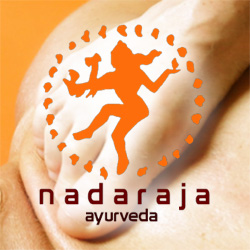

.jpg)
